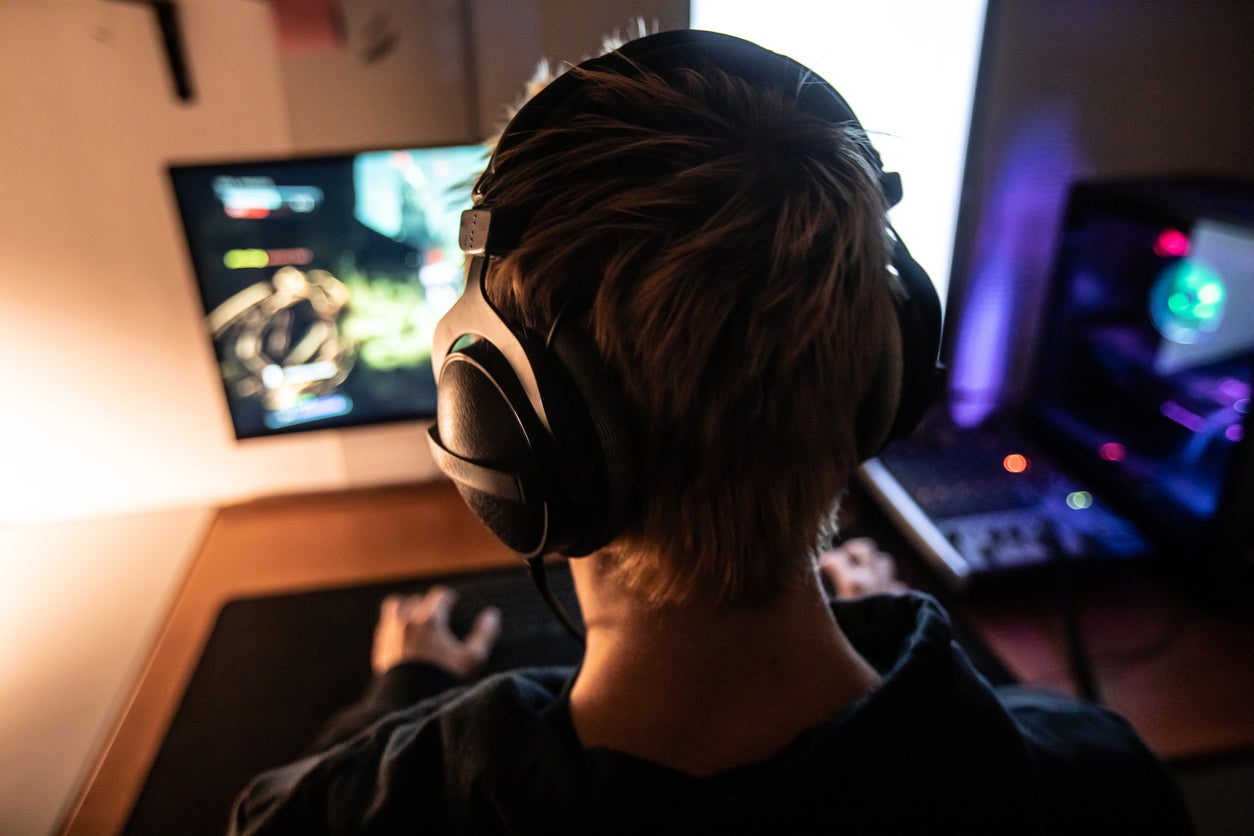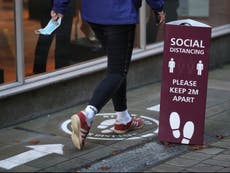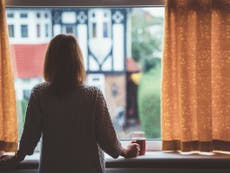Coronavirus could be creating a whole generation of recluses
The pandemic may be growing Britain’s shut-in population, and causing people to withdraw from society entirely


Your support helps us to tell the story
From reproductive rights to climate change to Big Tech, The Independent is on the ground when the story is developing. Whether it's investigating the financials of Elon Musk's pro-Trump PAC or producing our latest documentary, 'The A Word', which shines a light on the American women fighting for reproductive rights, we know how important it is to parse out the facts from the messaging.
At such a critical moment in US history, we need reporters on the ground. Your donation allows us to keep sending journalists to speak to both sides of the story.
The Independent is trusted by Americans across the entire political spectrum. And unlike many other quality news outlets, we choose not to lock Americans out of our reporting and analysis with paywalls. We believe quality journalism should be available to everyone, paid for by those who can afford it.
Your support makes all the difference.They are called hikikomori in Japan, a group of people who almost completely withdraw from society in favour of spending most of their lives in just one room.
They’re popularly seen as young video gamers who spend their lives glued to screens. They’ve occasionally turned up in those slightly patronising TV travel programmes whose premise appears to be, “Isn’t Japan charmingly weird?”
But this isn’t a purely Japanese phenomenon. They cropped up in the (excellent) South Korean Netflix zombie film #Alive: its lead character is a shut-in, suggesting that the concept has been exported beyond Japan’s shores.
Interestingly, a study by the Japanese government last year found that the country now has more hikikomori aged between 40 and 64 than those aged 15 to 39. So this isn’t unique to the young.
The pandemic may serve to create many more of them in many more places.
Take Britain. It has actually always had its shut-ins. They are often, like me, disabled. Their withdrawal from society isn’t necessarily voluntary; it’s a function of the systematic failure of social care.
But I suspect that at least some of us who don’t require assistance to go out nonetheless sometimes choose not to.
For the disabled, there’s the hassle of taking kit around, the challenge posed by getting into places, and a public transportation system that can sometimes prove openly hostile. Cars, meanwhile, have to be parked, and disabled spaces are thin on the ground. Regulations seem cynically designed to entrap people, with a view to raising revenue.
Worse still are the occasional instances of abuse.
When you encounter that sort of thing – and I have – and getting out the front door feels like embarking on a trek around Aintree Racecourse without the help of a horse, is it any wonder that people stop at the front door?
This was before the virus and lockdown got us out of the habit, before the time when “stay home” became the sensible – maybe the only – choice for the clinically vulnerable.
But it isn’t just people with physical disabilities for whom withdrawal may seem like a logical choice now and potentially beyond lockdown. Many of those who suffer from anxiety and/or other mental health issues likely feel the same way. Those who look at what the society of Britain is becoming could easily be overwhelmed with despair.
An inability to relate to, or fit in with, society helped give rise to more than a million hikikomori in Japan. How many will go down that route in Britain?
The pandemic, and the resulting economic blowback, has created a further push by forcing the closure of communal meeting places. Town centres are being hollowed out. Government support will not prove sufficient to prevent thousands of pubs, bars, and restaurants from closing. Ditto arts venues. The future for cinemas is cloudy, with their operators deep in debt and the big studios releasing their pictures direct to streaming services.
The technology that facilitated streaming, and a myriad of other home entertainment options, has its pull.
Young people, today’s digital natives, are fully plugged into an online world that you don’t need to go out of your front door to interact with. You don’t necessarily need the income of indulgent parents to support a shut-in lifestyle. It’s now perfectly possible to fund yourself in isolation.
This shouldn’t be read as a knock against the digital society. The facility to work from home has kept me in work. My high-functioning autistic son finds it much easier to relate to people digitally. It removes some of the pressure points that make human interaction stressful for him: eye contact, for example. It is, I think, of great benefit to him.
And yet I worry. I can easily see a situation where he joins the hikikomori. I might end up there myself if the push becomes sufficiently strong, and if Liz Truss’s ugly Trumpian attitude towards her brief as “equalities minister” leads to the erosion of the already flimsy protections afforded to Britain’s disabled people. I doubt I’m alone in that situation.
In five or 10 years’ time will the future Department of Health and Social Care be putting together a report like the Japanese government, one that identifies the legion of older hikikomori?
It wouldn’t surprise me in the slightest.
The pandemic is creating multiple challenges that, in the midst of battle to bring it under control, are scarcely being thought about – much less discussed. Perhaps it’s time to start with the growing isolation of people from society, which is clearly going to be one of them.




Join our commenting forum
Join thought-provoking conversations, follow other Independent readers and see their replies
Comments